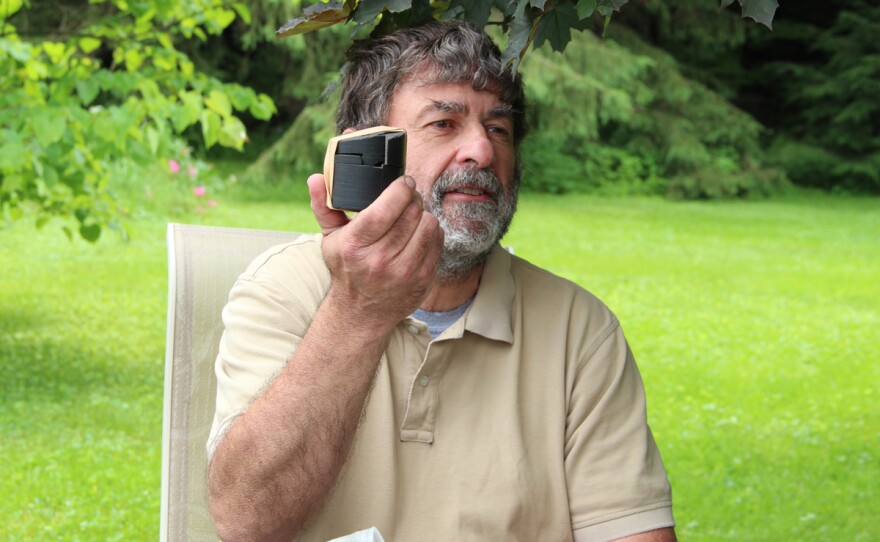The first thing I did this morning, after sucking down a cup of watery hotel coffee and some microwave-scrambled eggs, was go to the dump.
I'm traveling through Pennsylvania, New York and Ohio learning about shale drilling with a group of journalists, and we were visiting the McKean County Landfill.
Why a landfill, when our tour objective is to learn about hydraulic fracturing and the impact of the Marcellus Shale energy boom?
Well, it turns out, the process of drilling and hydraulically fracturing wells produces a fair amount of waste. A lot of that waste ends up in a landfill -- about 1,000 tons per well drilled, said Larry Schilling, regional vice president of Casella Waste Systems, which runs many landfills in the Northeast.
That waste has become a source of controversy in New York, where concerned citizens claim it is radioactive and should not be disposed of in a landfill.
According to Casella's Schilling, the solid waste that comes from drilling -- material known as drill cuttings, that come out of the hole, and other solids is hardly radioactive -- maybe slightly above background levels.
He demonstrated this with a Geiger counter and a pail of drill cuttings, which he held over the counter. Every once in a while the counter bleeped, softly. He then held a piece of landscaping granite over the counter. The bleeps got slightly stronger. In other words, these pieces of rock coming out of the well were about as radioactive as the stone you might use as a lawn decoration.

So what are the concerned citizens worried about?
When we talked later with Gary Abraham, an environmental attorney and founder of the group Concerned Citizens of Cattaraugus County, he agreed that the rocks coming out of the well hole are probably not that radioactive. But that's not the only thing going into the landfill, he said.
Water also comes out of the well, and that water can have high levels of radon, a radioactive element, dissolved in it. This isn't unique to the Marcellus Shale -- drilling in Colorado, North Dakota, and other states also turns up radioactive water, when the naturally occurring radioactive chemicals mix with water and are pulled up from deep inside the earth.
Abraham and others are concerned that the solid waste that ends up in the landfill has enough water in it to be result in dangerous levels of radioactivity flowing out of water that leaves the landfill. They've petitioned the state of New York's Department of Environmental Conservation to stop drilling waste from going to landfills, but were not successful.
For his part, Casella's Schilling says the waste they get, being solid waste, does not have radioactive water in it. But Bill Kappell, a hydrogeologist emeritus with the U.S. Geological Survey that tagged along with our group, said that when drill cuttings are delivered they are often more sludgy than solid: "I's not that bucketful of dry cuttings that you saw."
Abraham said his citizens group has found increasing levels of radioactivity in water samples from landfills. The levels aren't high enough to violate drinking water standards, but they are steadily increasing, which he sees as a problem.
"It has not been demonstrated that [drilling] can be done safely, because of the waste problem," Abraham said.
I haven't heard much about how drilling waste is disposed of in Colorado, and if there are similar concerns. It's something I'd like to learn more about when I get back.
Editor's Note: Reporter Stephanie Paige Ogburn traveled in Pennsylvania, New York and Ohio on an Institute for Journalism & Natural Resources fellowship to see the effects of the energy boom in the east first hand. Her dispatches compare the boom there, with the boom right here in Colorado. You can follow Stephanie on Twitter, @spogburn.









